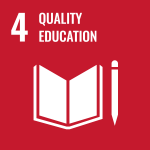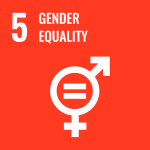UGEC3225 Gender Biases in Education and the Workplace
Course Description
(UGEC3225 is double-coded with GDRS3024.)
Educational and occupational accomplishments vary dramatically among individuals and profoundly affect lives. Importantly, gender is among the powerful individual characteristics that affect people’s experiences in educational and work settings. Gender shapes youths’ experience and outcomes of education across the globe and across history. This course is designed to introduce to students, with a critical mindset, important contemporary issues at the intersection of gender, education and jobs. The topics address the role of gender in school- and related preferences and achievements, with a focus on social and cognitive approaches. For example, what is quality education (SDG goal 4) and why is it important to evaluate it with a gender perspective? Do men and women really differ in their abilities, and if so, by how much? Is personal interest a better explanation of gender imbalances in occupations? What are the ways that biases exist in education and the workplace, and how do teachers, parents, and employers contribute to gender biases (SDG goal 5)? Can gender equality in performance and hiring be improved by removing stereotypes? The literature will cover childhood, adolescence as well as adulthood in order to provide insight into the age-related changes of the gender issues. Particular attention will be paid to issues that relate closely to daily life, both local and international. Empirical evidence will be reviewed to illustrate the gender biases and substantiate the explanatory theories. Potential interventions to address gender biases in education and the workplace will also be discussed.
Learning Outcome
- Be aware of gender differences and similarities and gendered treatments in learning and occupational contexts in daily life
- Be knowledgeable of the classical and latest research on gender in educational and occupational contexts and outcomes
- Be more informed about the causes of gendered phenomena in educational and occupational contexts and how to deal with them constructively
- Be able to reflect on how gender has affected themselves as a learner and achiever





